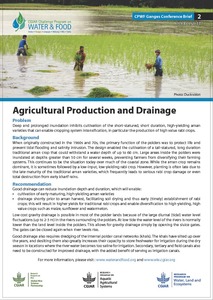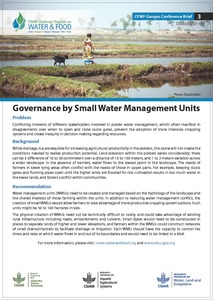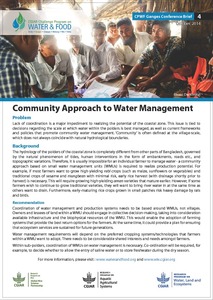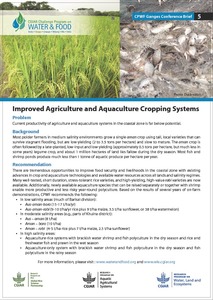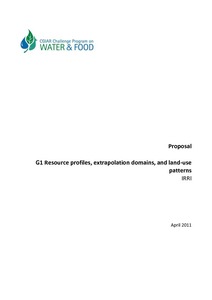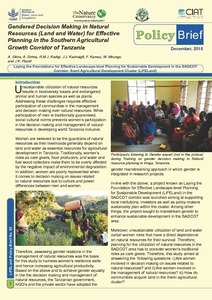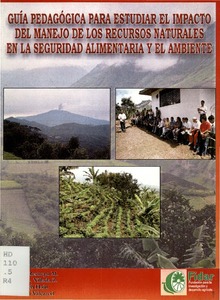Ganges Coastal Zone Issue Brief 4: Community Approach to Water Management
G1 Resource profiles, extrapolation domains, and land-use patterns
The Ganges Basin Development Challenge (BDC) research program will focus on brackish-water coastal zones in the Ganges Basin, where agricultural lands have a maximum salinity greater than 5 ppt (parts per thousand) in the dry season (salinity is lower in the wet season). The BDC vision of success requires innovations in water governance, improved availability of dry-season water, improved practices for managing salt-affected lands, and intensification and diversification of farm systems.
Gendered decision making in natural resources (Land and Water) for effective planning in the Southern agricultural growth corridor of Tanzania
Género, instituciones y sostenibilidad en el contexto de las reformas de descentralización forestal en América Latina y África Oriental
Genre, institutions et durabilité dans le contexte des réformes de la décentralisation forestière en Amérique latine et en Afrique de l’Est
Gender, institutions and sustainability in the context of forest decentralisation reforms in Latin America and East Africa
Women’s participation in decision making at the user-group level and in forest committees has been demonstrated to have a positive impact on forest sustainability. For example, women’s participation enhances forest regeneration and reduces illegal harvesting through improved monitoring. Their presence in forest user groups increases the groups’ capacity to manage and resolve conflicts, which in turn increases the likelihood that resource users will comply with and respect harvesting and use rules.

